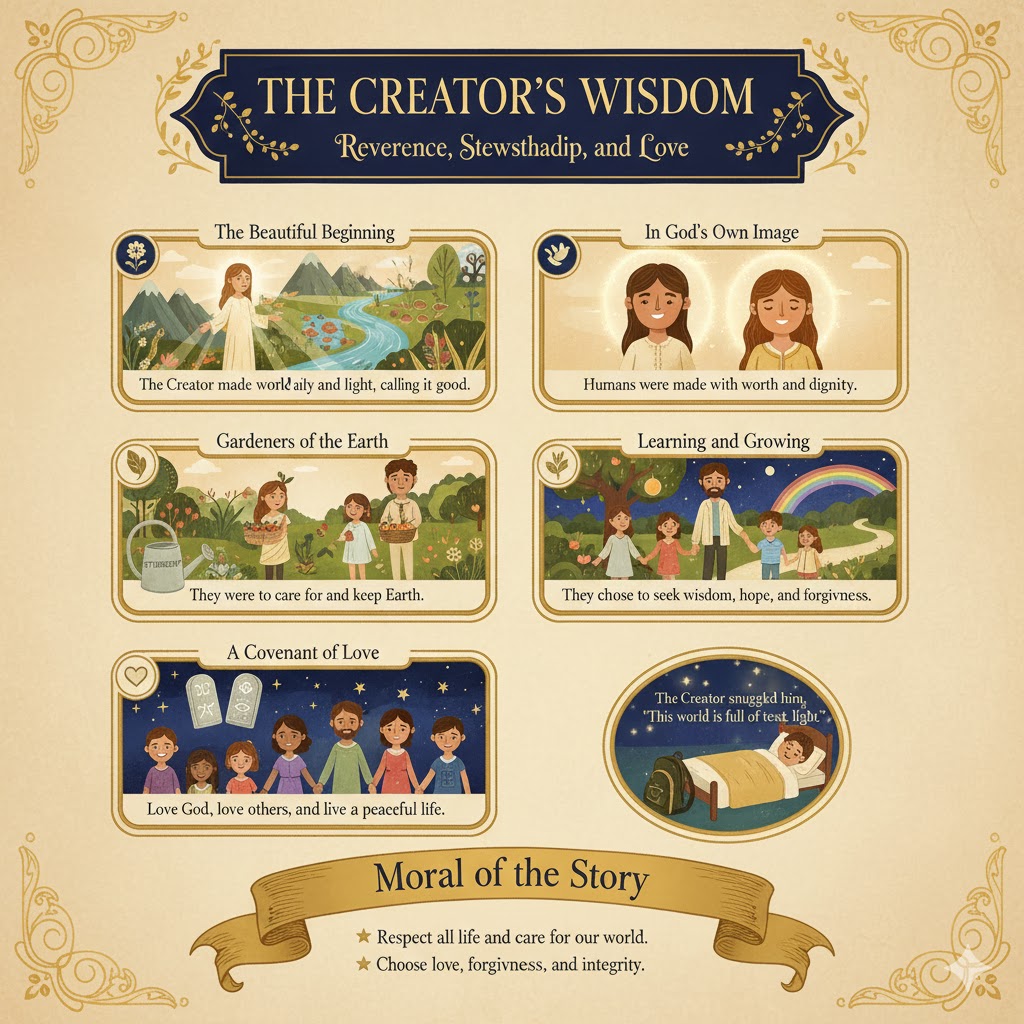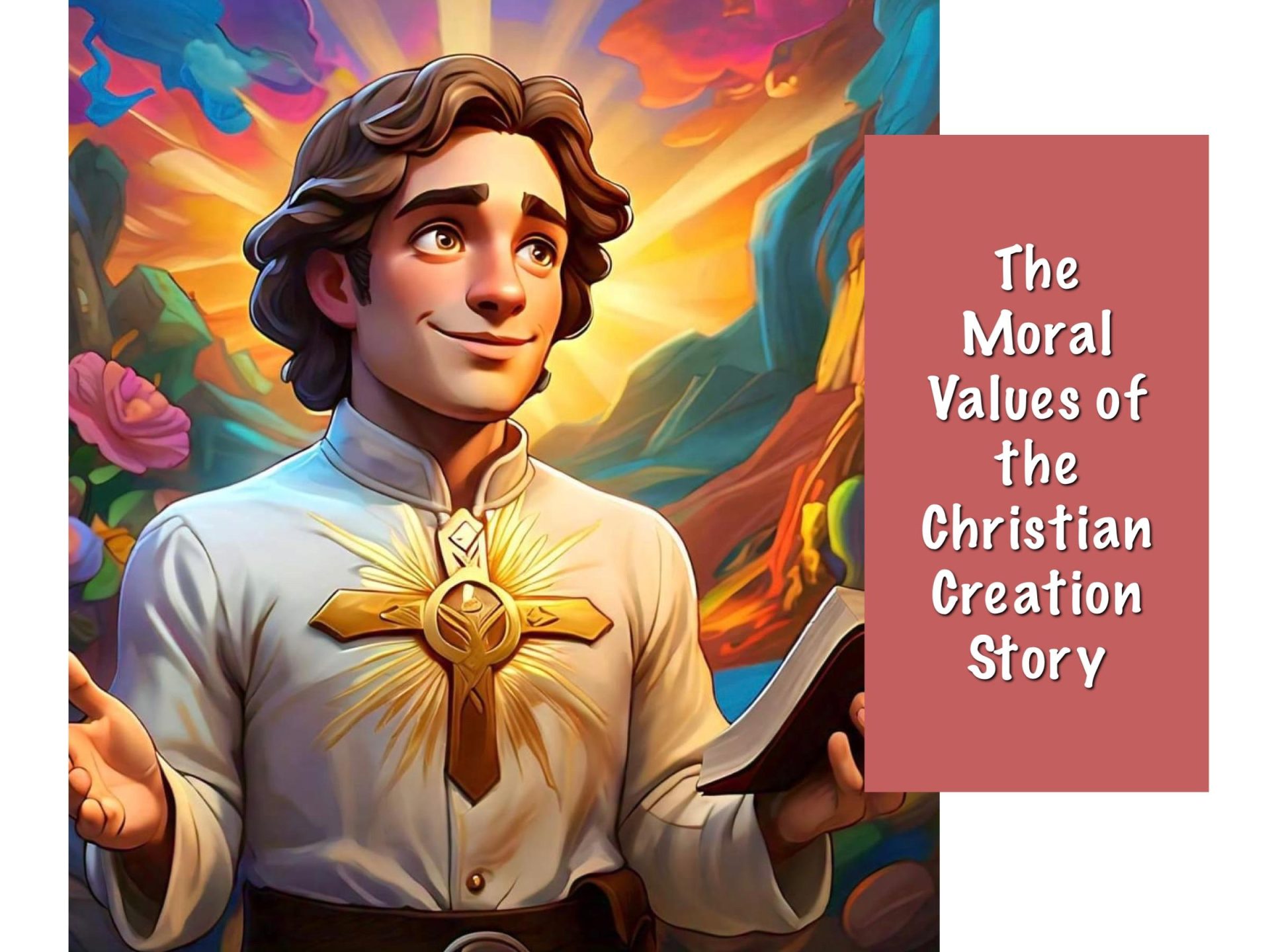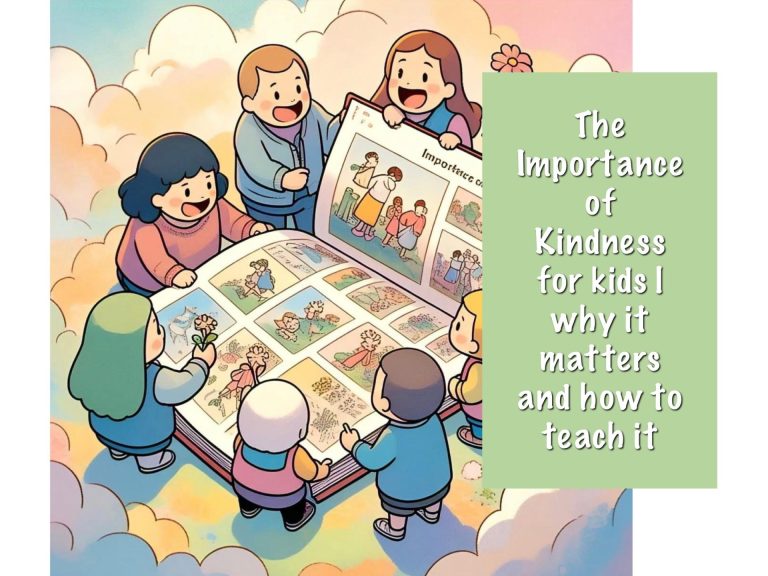The Moral Values in the Christian Creation Story | A Comprehensive Guide
Understanding the moral values in the Christian creation story allows readers to appreciate the timeless teachings that shape Christian life and thought. This guide delves beyond the basics, addressing key theological insights and historical perspectives that give the creation story, the Fall, and the Ten Commandments profound relevance today. Christians believe that the Bible’s early chapters set the stage for understanding humanity’s place in the world and their relationship with God, other people, and creation itself. This article explores moral values of respect, dignity, responsibility, and forgiveness through these timeless teachings.

The Creation Story: Reverence, Stewardship, and the Sanctity of Life
The Genesis creation narrative (Genesis 1-2) presents a God who lovingly crafts the world over six days, affirming creation as “good” at every stage. This reverence towards creation lays the groundwork for key Christian moral values:
- Reverence for Creation: Each element of creation, including plants, animals, and humans, is viewed as valuable. This is echoed in Psalms and other biblical texts where nature’s beauty is praised as a reflection of God’s work (Psalm 19:1). For Christians, respecting the environment is not just a modern concern but a moral duty that originates from this early story.
- Human Dignity and the Imago Dei (Image of God): Genesis 1:27 states that humans are created in the image of God, establishing a moral foundation for human dignity. Christians believe this means every individual carries intrinsic worth, fostering values of respect and equality.
- Stewardship of Creation: God entrusts humans with “dominion” over creation (Genesis 1:28), which Christians interpret as a responsibility to care for the Earth. This principle, known as stewardship, has inspired modern Christian environmental ethics, emphasizing sustainable practices as a moral obligation.

The Fall: Understanding Human Nature, Accountability, and Redemption
The story of the Fall in Genesis 3 addresses themes of temptation, disobedience, and consequence, revealing deeper aspects of human nature and the importance of moral accountability.
- The Choice and Consequence of Free Will: By allowing Adam and Eve the freedom to choose, God establishes the importance of free will in the Christian understanding of morality. When Adam and Eve eat the forbidden fruit, they become morally accountable for their actions, setting a precedent for personal responsibility and awareness of right and wrong.
- Humility and Awareness of Sin: The Fall introduces the concept of sin as a separation from God, teaching Christians the value of humility. Recognizing one’s shortcomings and seeking to overcome them is a key moral value, which encourages believers to grow spiritually and live more ethically.
- Hope in Redemption: Though the Fall introduces suffering, the Bible presents this as the beginning of God’s redemptive plan. The promise of redemption—fulfilled later through Jesus Christ in the New Testament—demonstrates that moral failings are not the end of the story, but rather opportunities for growth and reconciliation.
The Ten Commandments: Foundations for Ethical Living
The Ten Commandments (Exodus 20) form a clear moral code with universal themes of respect, justice, and personal integrity, making them central to Christian ethics. Each commandment provides a building block for a just and peaceful society, establishing a moral framework that shapes Christian life.
- Loving God and Neighbor: The first four commandments focus on one’s relationship with God, while the remaining six guide human interactions. This split emphasizes the importance of love and loyalty to God and respect for others.
- Integrity and Truthfulness: Commandments against lying and stealing (Exodus 20:15-16) uphold honesty and integrity as vital moral values. Christians believe these principles foster trust and reliability, essential for building strong, honest communities.
- Respect for Family and Life: The commandment to “honor your father and mother” (Exodus 20:12) and the prohibition against murder (Exodus 20:13) highlight the sanctity of family and life. These values teach respect within relationships and emphasize life’s inherent value, underpinning Christian social ethics.
Applying These Moral Values in Today’s World
For Christians, the moral values from these biblical accounts offer enduring wisdom that transcends time and culture. Here’s how these principles continue to be relevant:
- Environmental Stewardship and Social Responsibility: As stewards of creation, Christians are called to care for the environment, which today translates into advocating for sustainable practices. This duty extends to promoting social justice, protecting vulnerable populations, and supporting responsible resource use.
- Promoting Human Rights and Social Equity: Believing in the image of God in every person, Christians are often advocates for human rights. This moral foundation informs Christian support for equality, anti-discrimination efforts, and initiatives to uphold human dignity in all societal aspects.
- Accountability and Forgiveness in Personal Relationships: The lessons from the Fall encourage Christians to take responsibility for their actions while also embracing forgiveness. This dual approach is essential in personal relationships, where conflict resolution, forgiveness, and understanding pave the way for healthier, more compassionate communities.
Key Insights and Lesser-Known Facts
- The Imago Dei Concept in Social Justice Movements: Many Christian activists reference the concept of humans made in God’s image to support efforts for racial and social justice, finding motivation in the biblical call to uphold each person’s dignity.
- Environmental Activism and Stewardship: Recently, Christian organizations have joined environmental movements, citing stewardship as a moral imperative that originates from the Genesis creation story. This biblical value has gained new importance in Christian communities advocating for climate action.
- Moral Lessons Tied to Future Redemption: The promise of a future Redeemer is a consistent theme, illustrating the Bible’s broader narrative that moral values are not merely about avoiding wrongdoing but living in harmony with God and others, anticipating ultimate redemption.
Conclusion
The Christian creation story, including the Fall and the Ten Commandments, holds a rich tapestry of moral values that guide believers in their relationships with God, humanity, and creation. By exploring these stories deeply, Christians find ethical principles that inspire stewardship, respect, integrity, and responsibility. This guide aims to show how these timeless values continue to shape moral perspectives and inspire positive action, reminding believers that they are part of a larger story, one that calls them to uphold, respect, and protect all aspects of God’s creation. We aim to be the best Online learning for kids website, Visit us more often for more such amazing guides.








